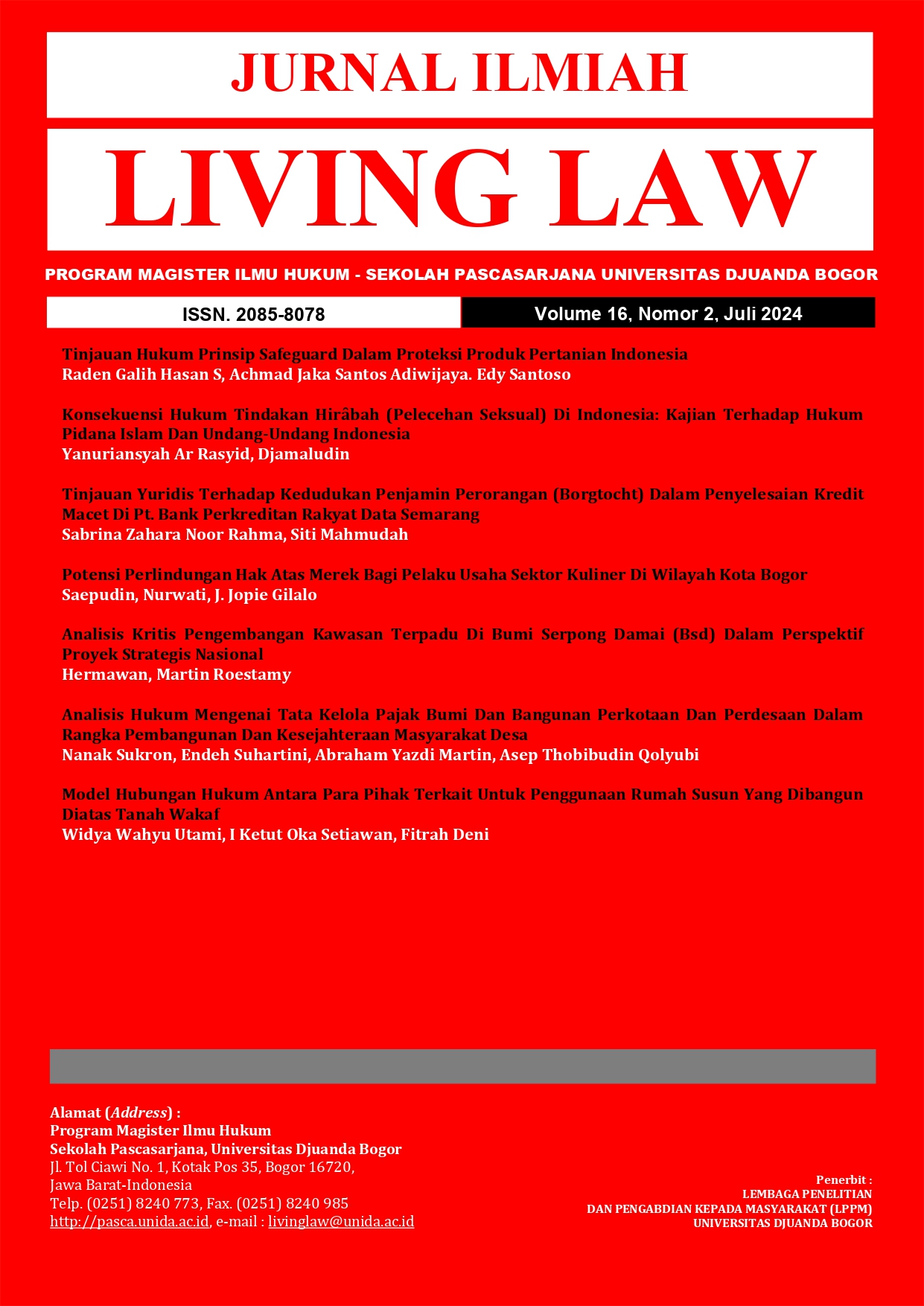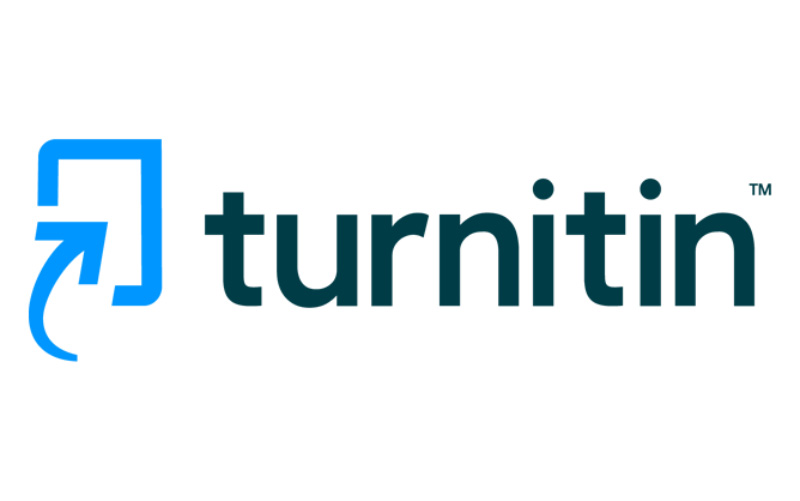POTENSI PERLINDUNGAN HAK ATAS MEREK BAGI PELAKU USAHA SEKTOR KULINER DI WILAYAH KOTA BOGOR
DOI:
https://doi.org/10.30997/jill.v16i2.10418Keywords:
Brand, Culinary, Potential, ProtectionAbstract
The research aims to find out and analyze the potential of legal protection for brands for business actors as well as the obstacles and efforts to overcome them according to Law Number 20 of 2016 concerning Trademarks and Geographical Indications, so as to find out legal protection efforts for brands for culinary sector business actors in Bogor City. The research method used in this study is empirical juridical which is analyzed qualitatively. From the research results it can be seen that the potential of legal protection for brands for business actors of the culinary sector consists of preventive legal protection and repressive legal protection. Barriers to culinary sector business actors in Bogor City in obtaining protection for their trademarks include the lack of understanding of culinary sector business actors regarding brands and their registration procedures, lack of counseling and outreach, expensive mark registration fees, and limited budget and experts in the field of IPR. Efforts to protect the law, namely through various policies, such as collaborating between the Director General of IP at the Ministry of Law and Human Rights and the Ministry of Cooperatives and SMEs in providing incentives for financing the registration of creative economy brand registration, as well as registration of collective marks for the creative economy industry
Downloads
References
Abdulkadir Muhammad, Kajian Hukum Ekonomi Hak Kekayaan Intelektual, Citra Aditya Bakti, Jakarta, 2011
Adrian Sutedi, Hak Atas Kekayaan Intelektual, Sinar Grafika, Jakarta, 2010
C.S.T Kansil, Engelien R Palandeng dan Godlieb N Mamahit, Kamus Istilah Hukum, Jakarta, 2009
Departemen Statistika IPB, Analisis Ekonomi Kreatif Kota Depok Tahun 2020, Dinas Komunikasi dan Informatika Kota Depok, Depok, 2021
Khoirul Hidayah, Hukum Hak Kekayaan Intelektual, Setara Press, Malang, 2017
M. Yahya Harahap, Tinjauan Merek Secara Umum dan Hukum Merek di Indonesia Berdasarkan Undang-Undang Nomor 19 Tahun 1992, PT Citra Aditya Bakti, Bandung, Tanpa Tahun
Parel Naibaho, Ekonomi Kreatif Pelatihan dan Pengembangan Produk, Fakultas Ekonomi Universitas Mpu Tantular, Tanpa Tahun
Rahmi Jened, Hukum Merek (Trademark Law) : Dalam Era Global dan Integrasi Ekonomi, Kencana, Jakarta, 2017
Satjipto Rahardjo, Ilmu Hukum, PT.Citra Aditya Bakti, Bandung, 2006
Soentandyo Winjosoebroto, Dari Hukum Kolonial ke Hukum Nasional, Dinamika Sosial Politik Dalam Perkembangan Hukum di Indonesia, PT Raja Grafindo Persada, Jakarta, Tanpa Tahun
Theresia A, et.al, Pembangunan Berbasis Masyarakat, Penerbit Alfabeta, Bandung, 2014
Tim Penyusun Pusat Data dan Sistem Informasi, Statistik Ekonomi Kreatif 2020, Penerbit Pusat Data dan Sistem Informasi Kementerian Pariwisata dan Ekonomi Kreatif/Badan Pariwisata dan Ekonomi Kreatif, Jakarta, 2020
Tim Penyusun, Infografis Sebaran Pelaku Ekonomi Kreatif di Wilayah Jawa Barat, Badan Ekonomi Kreatif, 2019
Yusran Isnaini, Buku Pintar HAKI, Ghalia Indonesia, Bogor, 2010
Jurnal:
Andrew Betlehn, dan Prisca Oktaviani Samosir, Upaya Perlindungan Hukum Terhadap Merek Industri UMKM di Indonesia, Law & Jurnal Justice, Volume 3, Nomor 1, April 2018
Arfi Dyah Chatarina, Perlindungan Pemilik Merek Pertama Pada Sistem Konstitutif, Jurnal Hukum dan Dinamika Masyarakat, Edisi 16, Volume (2), 2019
Asti Wulan Adaninggar, Hendro Saptono, dan Kholis Roisah, Perlindungan Produk Usaha Mikro Kecil dan Menengah Terkait Hak Kekayaan Intelektual Dalam Menghadapi Masyarakat Ekonomi Asean, Law Journal, Volume 5, Nomor 3, Tahun 2016
Bunga Vergia Rakhmah, Jeni Susyanti dan Agus Salim, Analisa Bisnis Ekonomi Kreatif Sub Sektor Kuliner Untuk Meningkatkan Kepatuhan Wajib Pajak (Studi Kasus Pada Pelaku Ekonomi Kreatif di Kabupaten Malang), e-jurnal Riset Manajemen Prodi Manajemen Fakultas Ekonomi dan BisnisUnisma, Tanpa Tahun
Endeh Suhartini, (et.al), Legal Politics and Policy Setting of Wage Systems for Creating Social Justice of Workers, Journal of Legal Ethical and Regulatory Issues, Volume 22, Issue 6, 2019
Endeh Suhartini, Legal Political Perspective Wage System to Realize Social Justice, Journal of Morality and Legal Culture (JMLC), 1 (2), 2020
Ghalib Agfa Polnaya dan Darwanto, Pengembangan Ekonomi Lokal untuk Meningkatkan Daya Saing Pada UKM Ekonomi Kreatif Batik Bakaran di Pati Jawa Tengah, Jurnal Bisnis dan Ekonomi, 22 (1): 1-10, 2015
Nurwati, Perlindungan Kreditur Dalam Eksekusi Jaminan Fidusia Pada Kredit Kedaraan Bermotor, Jurnal Hukum De’rechtsstaat, Volume 1 Nomor 1 Maret 2015
Rana Fanindya Putri Murad, Indarti Komala Dewi, dan Janthy Trilusianthy Hidayat, Implementasi Konsep Kota Kreatif di Kota Bogor, Prosiding Seminar Nasional Asosiasi Sekolah Perencanaan Indonesia (ASPI), 2021, Hlm. 69
T.N. Syamsah dan J. Jopie Gilalo, Upaya Menjamin Pelaksanaan Persaingan Usaha Yang Sehat, Jurnal Hukum De’rechtsstaat Vol 1 Nomor 1, Maret 2015
Internet:
Humas Setda Kota Bogor, Wali Kota Bogor Segera Terbitkan SK Forum Ekonomi Kreatif, https://kreasij abar.id/article/wali-kota-bogor-segera-terbitkan-sk-for um-ekonomi-kreatif diakses pada tanggal 2 Juli 2023 Pukul 21.45WIB
Badan Ekonomi Kreatif, Infografis Sebaran Pelaku Ekonomi Kreatif http://www. kemenparekraf.go.id diakses pada tanggal 12 Desember 2022 pukul 21. 45 WIB
Downloads
Published
How to Cite
Issue
Section
License
Copyright (c) 2024 JURNAL ILMIAH LIVING LAW

This work is licensed under a Creative Commons Attribution-ShareAlike 4.0 International License.
Authors who publish with Jurnal Ilmiah Living Law agree to the following terms:
- Authors retain copyright and grant the journal right of first publication with the work simultaneously licensed under a Creative Commons Attribution 4.0 International License that allows others to share the work with an acknowledgement of the work's authorship and initial publication in Jurnal Ilmiah Living Law.
- Authors are able to enter into separate, additional contractual arrangements for the non-exclusive distribution of the journal's published version of the work (e.g., post it to an institutional repository or publish it in a book), with an acknowledgement of its initial publication in Jurnal Ilmiah Living Law.
- Authors are permitted and encouraged to post their work online (e.g., in institutional repositories or on their website) prior to and during the submission process, as it can lead to productive exchanges, as well as earlier and greater citation of published work




